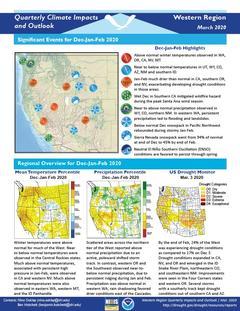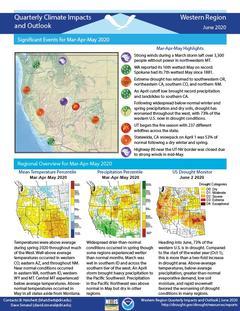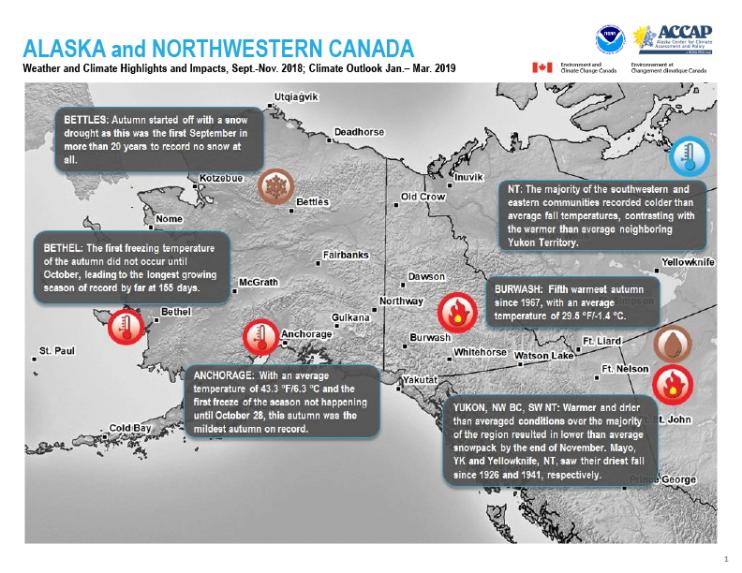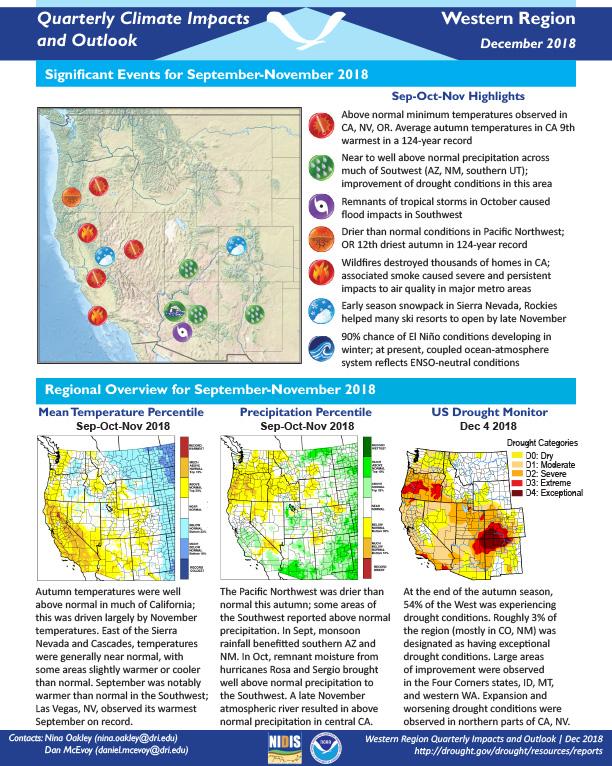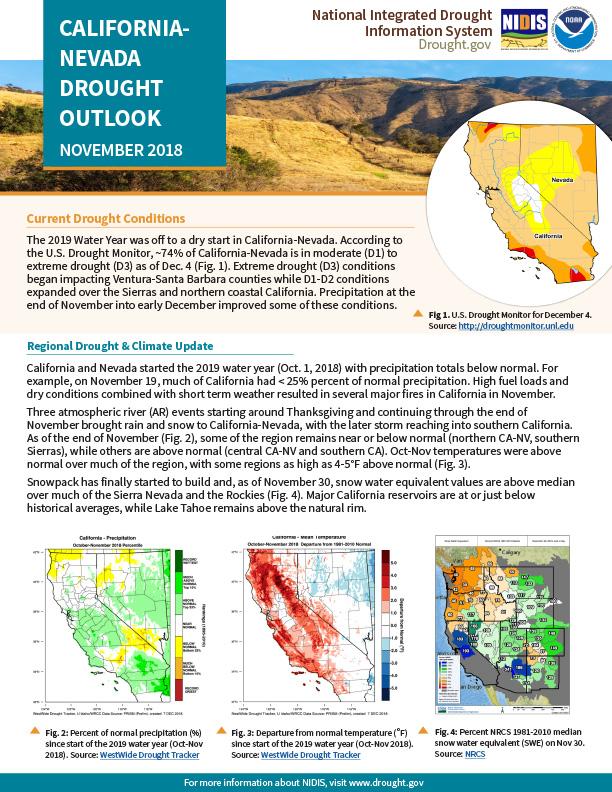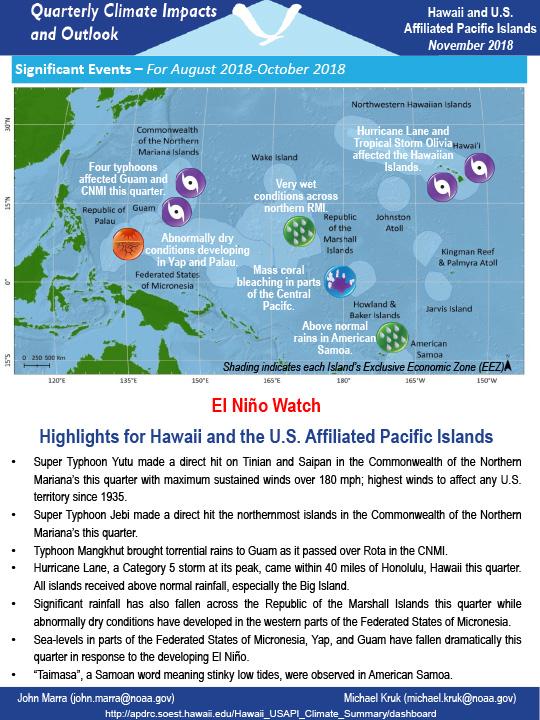Quarterly Climate Impacts and Outlook for the Western Region for March – May 2019. Dated June 2019.
Spring temperatures were variable across the West. The North Pacific storm track remained active through the spring season bringing above normal precipitation to much of the West.
Quarterly Climate Impacts and Outlook for the Western Region for December 2018 – February 2019. Dated March 2019.
Persistent stormy conditions helped to maintain near-to-below normal temperatures across much of the West this winter. Abundant precipitation and moderate temperatures helped alleviate drought conditions in large areas of the West.
Quarterly Climate Impacts and Outlook for the Western Region for December 2019 – February 2020. Dated March 2020.
Winter temperatures were above normal for much of the West. Near to below normal temperatures were observed in the Central Rockies states. Scattered areas across the northern tier of the West reported above normal precipitation due to an active, poleward shifted storm track. In contrast, western Oregon and the Southwest observed near-to-below normal precipitation, due to persistent ridging during January and February.
Quarterly Climate Impacts and Outlook for the Western Region for March – May 2020. Dated June 2020.
Temperatures were above average during spring 2020 throughout much of the West. Widespread drier-than-normal conditions occurred in spring though some regions experienced wetter than normal months.
While there is a strong connection between drought and wildfire in the western United States, how drought influences the post-wildfire environment is less well-understood, especially at shorter (1-3 year) timescales. The hazards posed by post-fire flooding and debris flows in burned landscapes depends on burn severity, underlying geology and topography, and vegetation recovery following the fire.
California and Nevada’s climate and weather patterns create fire-prone environments for many wildland–urban interface communities, highlighting the value in understanding the relationships between drought and wildfire. More specifically, information is needed on how drought indices are related to fire danger outputs that are commonly used in fire management.
Quarterly Climate Impacts and Outlook for Alaska and Northwestern Canada for September – November 2018; outlook for January – March 2019. Dated December 2018.
Between September and November 2018, Alaska, the majority of the Yukon Territory, and a small portion of northwestern Northwest Territories (NT) experienced warmer than average conditions. Total precipitation between September and November was below average over a small area in northwestern Alaska, and across a band spanning southern Alaska, southern Yukon, and southern NT.
Quarterly Climate Impacts and Outlook for the Western Region for September – November 2018. Dated December 2018.
Above normal minimum temperatures were observed in California, Nevada, and Oregon. Near to well above normal precipitation was observed across much of the Southwest (Arizona, New Mexico, and southern UT) with an improvement of drought conditions in this area.
Current Drought Conditions
The 2019 Water Year was off to a dry start in California-Nevada. According to the U.S. Drought Monitor, ~74% of California-Nevada is in moderate (D1) to extreme drought (D3) as of December 4, 2018. Extreme drought (D3) conditions began impacting Ventura-Santa Barbara counties while D1-D2 conditions expanded over the Sierras and northern coastal California. Precipitation at the end of November into early December improved some of these conditions.
Quarterly Climate Impacts and Outlook for Hawaii and the U.S. Pacific Islands Region for August – October 2018. Dated November 2018.
Includes significant events, regional climate overview, and sectoral impacts for August – October 2018; regional outlook for November 2018 – January 2019.




